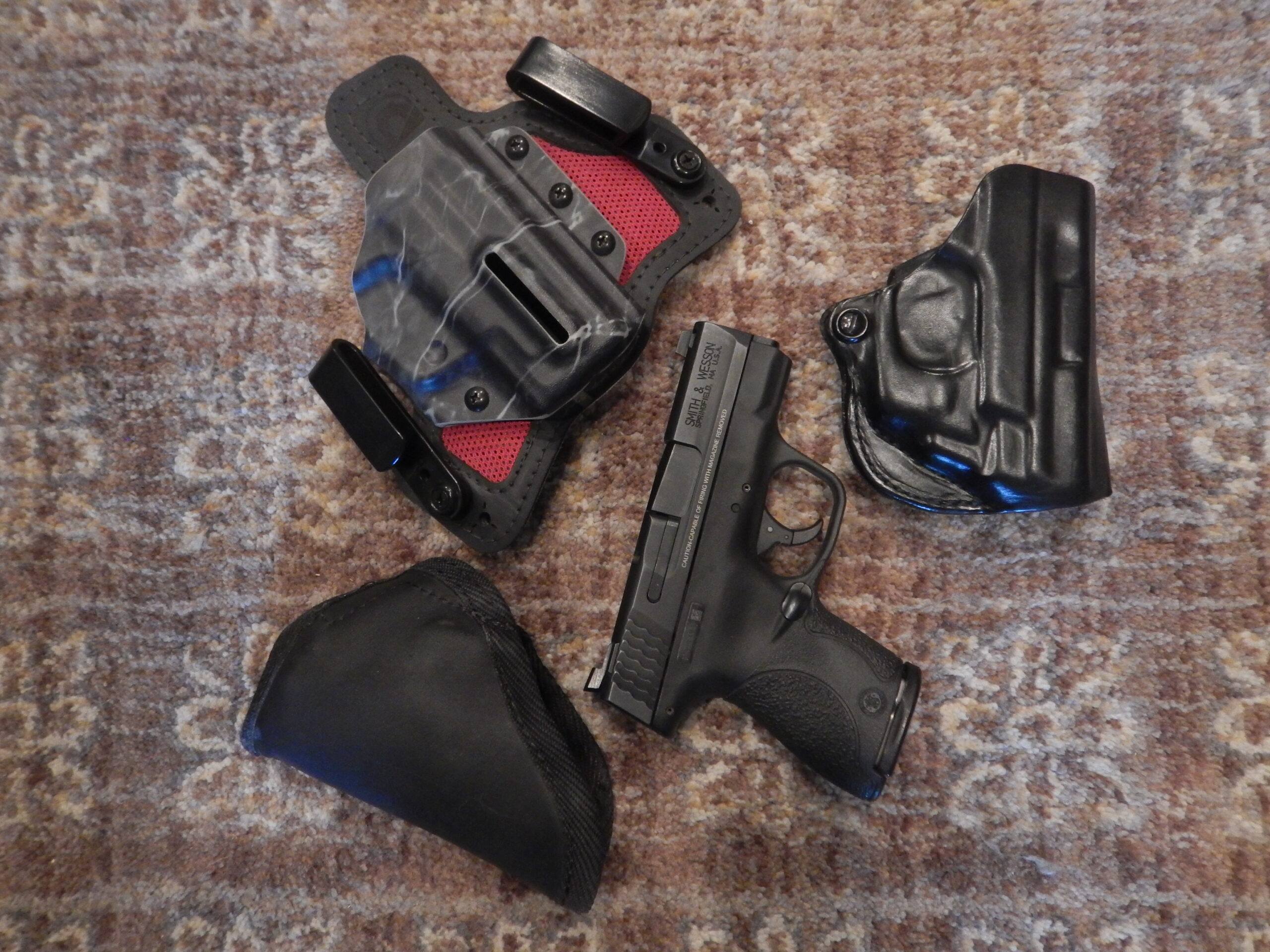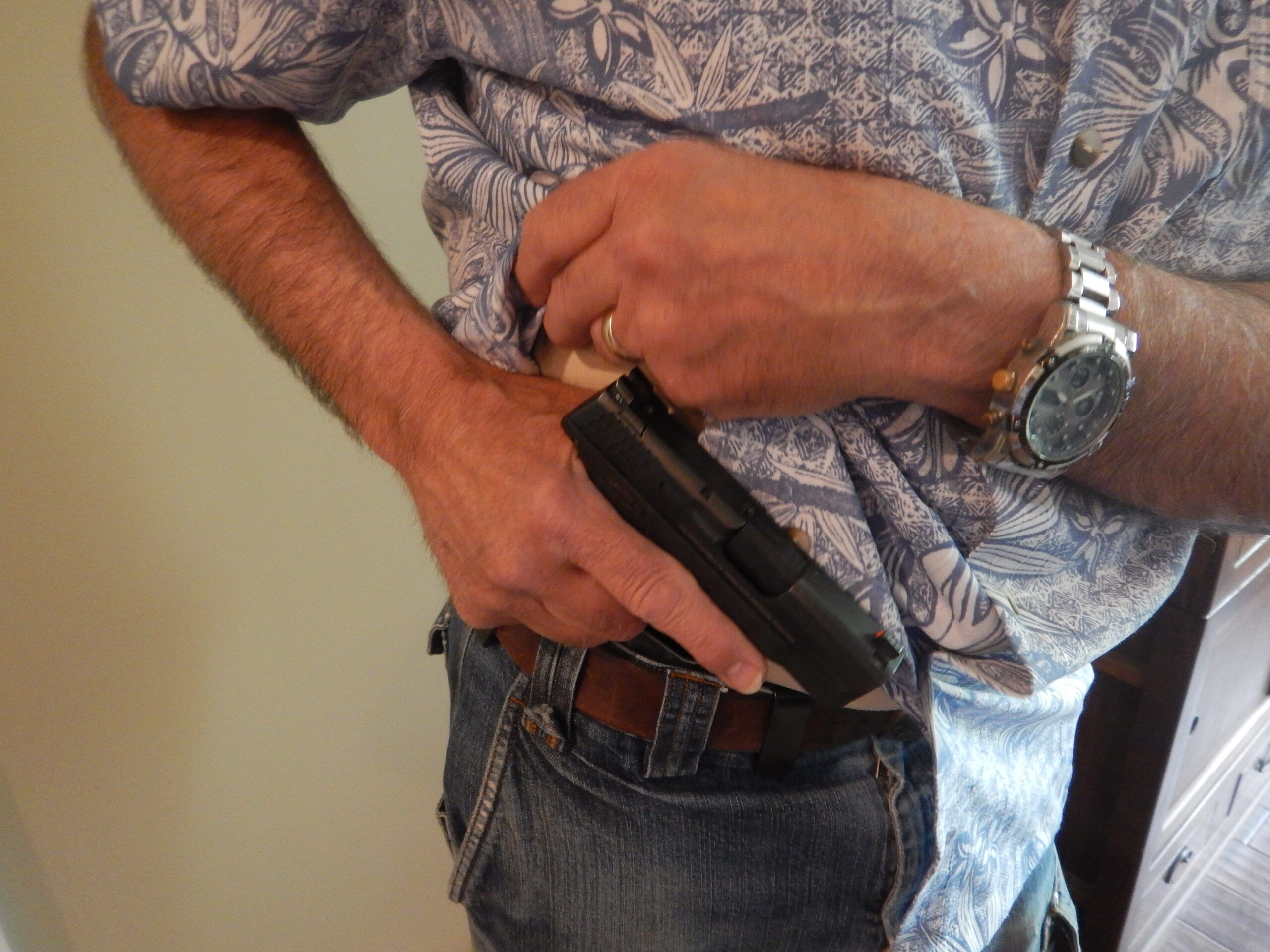Kansas Defense Training offers these classes:

The NRA-Certified Handgun Course
This is the basic handgun familiarization class and is an excellent way to become comfortable with pistols and revolvers, better understanding the way they work so you can choose which may best meet your own personal needs. We recommend this beginner course for those who are new to firearms or have limited experience but it may also be helpful to those who are returning to the shooting sports or to self defense after a long absence and particularly to those who are trying to decide whether they should purchase their first handgun or not and what to get. Safety will of course be the most important thing taught, but there are other aspects to this class, too, such as handgun types, parts, and functions, the difference between single action and double action, ammunition fundamentals, and types of holsters, like the photo. We will discuss both range and gun store rules and etiquette. Both in the classroom and on the range, we will practice grip and getting a good sight picture, standing and bench rest shooting with one hand and two, common malfunctions of handguns, and what to do about them. We will also talk about picking a handgun, selecting ammo, cleaning and maintenance, safe storage, and spend some time on the range practicing some of these skills. On the range, we will certainly try to help you with marksmanship issues as you must pass the NRA Level 1 shooting skill demonstration to receive a course certificate. At the end of the day, you should be much more knowledgeable and conversant about handguns in general and have developed some idea of what kind of gun may be best for you. This is an NRA course and is a fun course to take besides teaching you important information about being a handgun owner. If you are considering purchase of a handgun, especially if it is your first, please take this class before you do so as you will then be much more knowledgeable when you are out shopping.
$95.00 (Three to six students)
Kansas Concealed Carry Class (not an NRA class)
The Kansas Concealed Carry Course allows Kansas residents to meet all the requirements to apply for the Kansas Concealed Carry Permit in a single day. The concealed carry permit in Kansas is open to residents of Kansas who are 18 years old and older as well as active duty military and spouses who may not be Kansas residents. The class mainly covers the law regarding concealed carry in Kansas including the differences between criminal and civil law and some aspects of Federal law which are important to know. We will discuss the use of force in defense of oneself or others, how domestic violence can affect the concealed carrier, as well as school zones and other places where concealed carry may be prohibited. And we will discuss the aftermath of a shooting incident, what to do, how to do it, and how to interact with law enforcement whenever you may be carrying a handgun. Safe storage of your handgun in your home is another aspect of the training day. The Kansas Attorney General also requires that you demonstrate your ability with your handgun by means of a passing score on the range using a silhouette target. This class assumes that you already know how to shoot your handgun. If you are a new shooter or returning to shooting after a long absence, please consider enrolling in the NRA basic handgun class, above, as that may be just the ticket to getting back in the groove on the range. To summarize this concealed carry class:
• 8 Hours In-Person Classroom Instruction and Range qualification.
• Instructor certified by the Kansas Attorney General
• Must be 18 years or older within the next year to attend this class
• In-depth discussion on the law and the judicial use of a firearm
• 1-Day Course (weather permitting)
• Exceeds state requirements
• Application must be made in your county of residence but accepted by all counties
• Hands-on training to maximize learning experience
• Class taught in a casual, small group environment
$85.00, but $75.00 if I have four or more signed up (minimum of three and maximum of six students)

